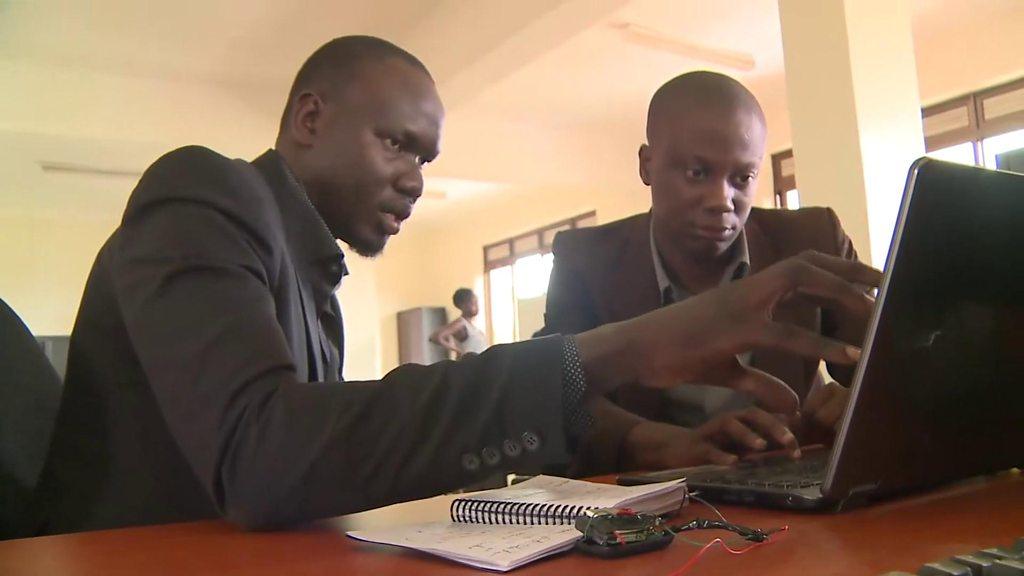East Africa to track trucks from Mombasa port to stop theft
- Published
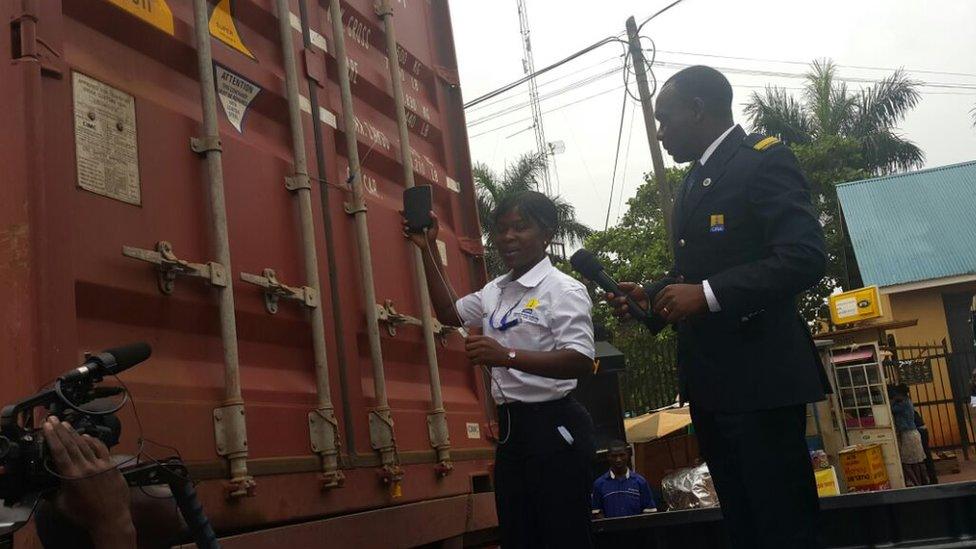
The electronic device will help to improve the process of transporting goods
East African customs authorities have adopted an electronic system to track lorries travelling between Kenya, Uganda and Rwanda to speed up journeys.
The trackers will allow officials and traders to monitor trucks travelling to and from the Kenyan port of Mombasa.
A device will be attached to vehicles and is intended to help prevent hijacks and goods being tampered with.
Uganda, which pioneered the project, says journey times could be cut from three-and-a-half days to just 36 hours.
Detours detected
The geo-mapping, known as the Regional Electronic Cargo Tracking (RECT), will apply to the main road stretching from Mombasa port to the Rwandan capital, Kigali, known as the "Northern Corridor".
Officials will be able to monitor journeys on a map and be able to immediately detect any detours.
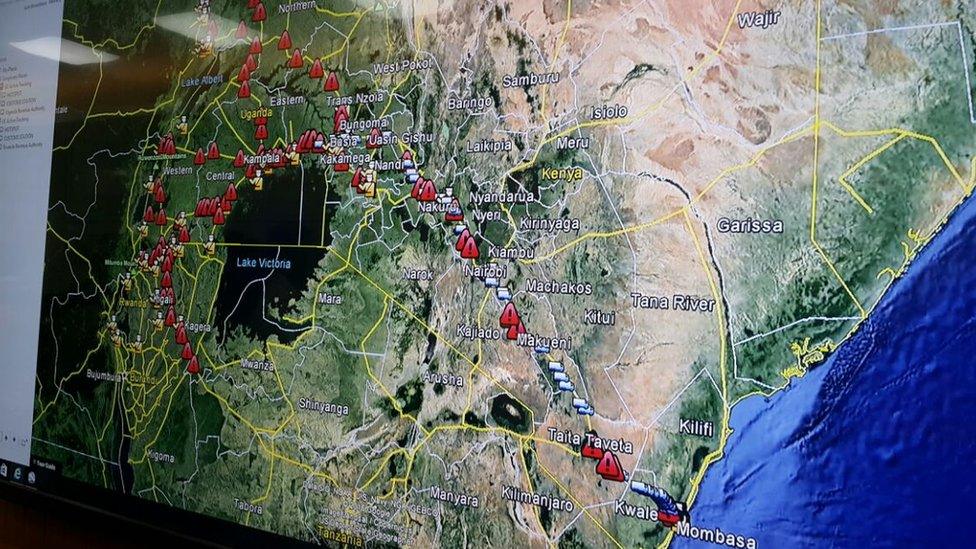
Trucks will be remotely monitored
About 90% of goods through the region are transported by road with the risk of cargo being targeted by criminals.
Customs officials say drivers have also been known to take diversions and siphon off freight, for example offloading coffee and adding stones to make up the missing weight.
"There has always been that unpredictable aspect of not knowing whether your goods will reach or they won't reach and that in itself is a very serious discomfort, now this will resolve that problem," Kassim Omar, chairman of the Association of Clearing and Forwarding Agents in Uganda, told the BBC at the launch in the Ugandan capital, Kampala.
"The level of assurance guarantees the buyer abroad or the supplier from this end that what was sent will be what is contained in that particular container," he added.
The system will also mean that all appropriate tax is properly declared.
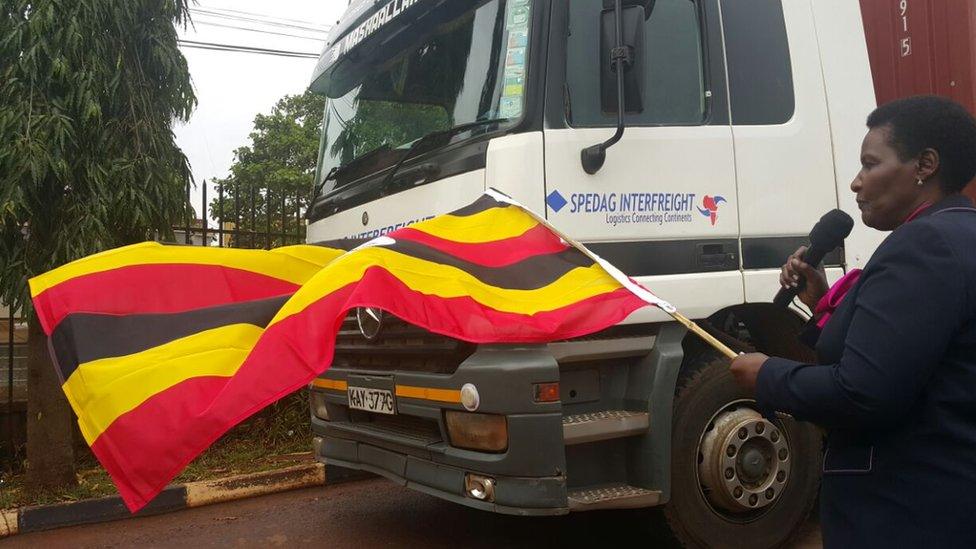
RECT was pioneered by the Uganda Revenue Authority
The amount of time spent clearing goods at Mombasa ports will also be significantly reduced, according to Bernard Kibiti, from the Kenya Revenue Authority.
He told the BBC the whole process would be more efficient and would result in less paperwork.
From Mombasa to Rwanda's capital, Kigali, a truck spends about 80 hours stuck at border posts.
A lorry is stopped at either side of the Kenya-Uganda border, taking an estimated 40 hours to clear both, and the same time at the Uganda-Rwanda border.
With the electronic tagging a driver will be checked and present their papers once at each border.
The BBC's Patience Atuhaire in Kampala says the three East African Community countries hope the seamless movement of goods enabled by the electronic cargo tracking system will attract even more investment to the region.
- Published7 June 2016
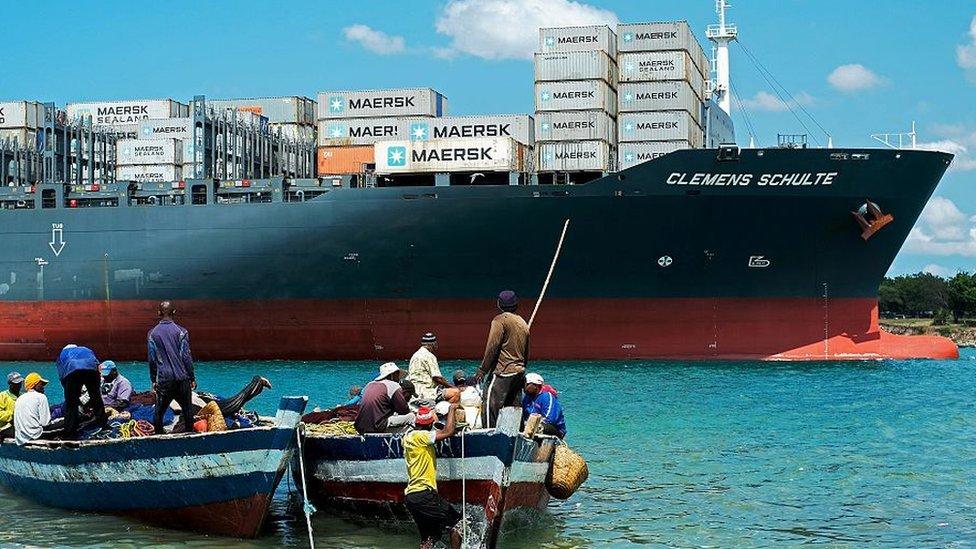
- Published14 October 2016
